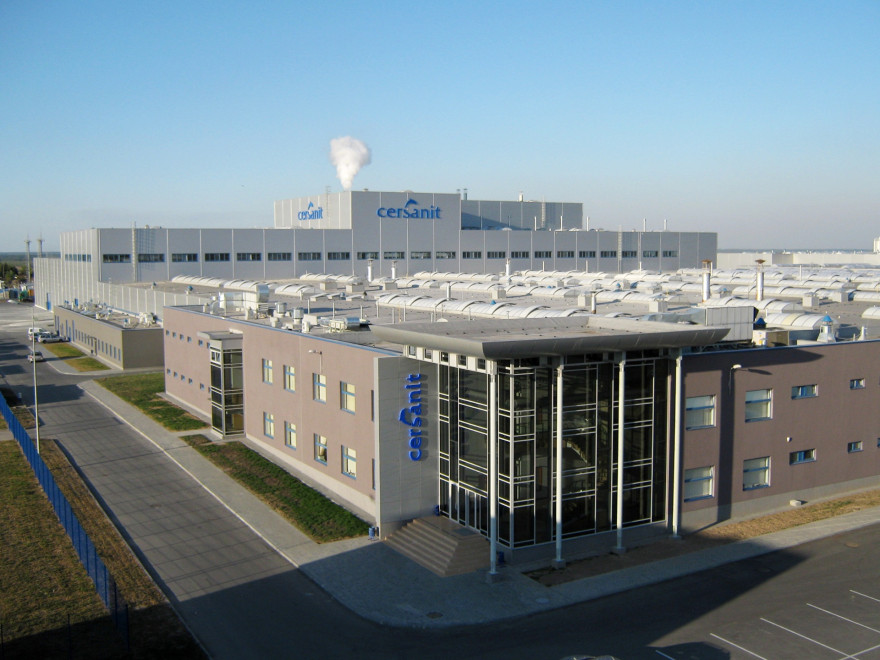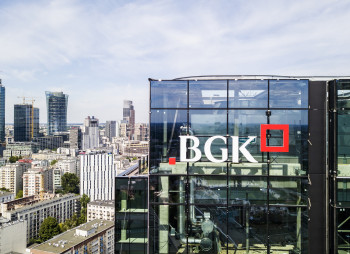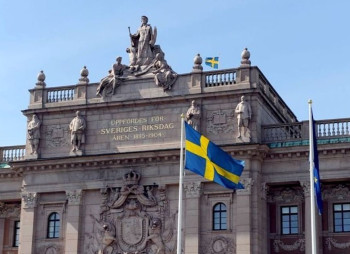The European Bank for Reconstruction and Development (EBRD) is lending €42 million to Cersanit SA, a leading Polish ceramic tile and bathroom equipment manufacturer with a large operation in Ukraine that is expected to play an important role in the reconstruction of infrastructure damaged by war.
Signed during a visit to Poland by EBRD President Odile Renaud-Basso, the long-term funding will help the company complete multiple investments in both Ukraine and Poland as well as manage its working capital needs. In particular, the EBRD finance will enable the Cersanit group to scale up tile and sanitaryware production in Ukraine, complete a project for manufacturing large-format ceramic tiles at the same plant in Ukraine, reconstruct an acrylics products factory in Poland, and complete energy efficiency upgrades and other modernisation investments in Poland.
The EBRD has offered unwavering support to Ukraine and its neighbours since Russia invaded Ukraine last year. As well as a Resilience and Livelihoods Framework launched in early 2022 to provide finance to mitigate the war’s impact on Ukraine and neighbouring states, including Poland, the Bank has pledged to invest a record €3 billion in Ukraine by the end of 2023. In 2022, it deployed €1.7 billion in Ukraine, along with a further €200 million mobilised from partner financial institutions. The Bank also had a record year in Poland, with total investment of €990 million in 2022.
Russia’s war on Ukraine has impacted the Cersanit group in multiple ways. It forced Cersanit’s Ukrainian subsidiary, Cersanit Invest LLC, which employs about 1,200 staff, to temporarily halt production. The war also prompted the company to make a strategic decision to dispose of its assets in Russia, which had accounted for nearly one-fifth of the group’s total sales.
At the same time, Cersanit’s Polish operations were affected by a fire outbreak that destroyed its acrylic products factory.
“This investment not only helps the economies of both countries by supporting a vibrant company producing goods locally that will be an essential component in Ukraine’s reconstruction, it also preserves human capital by maintaining essential jobs. The EBRD remains committed to financing other investments in Ukraine and neighbouring states affected by the war,” said EBRD Vice President Alain Pilloux, who signed the loan agreement in Warsaw.
“Despite a very challenging environment caused by the outbreak of war and increased energy prices, Cersanit has proved to be resilient and adaptive to the new economic reality. We remain committed to expanding our activities in Ukraine through continued production of ceramic tiles and sanitaryware. I want to thank all Cersanit’s staff for their commitment, dedication and empathy. I also firmly believe that other European and global businesses will follow our footsteps and consider investing in Ukraine as well,” said Cersanit’s owner Michal Solowow.
Repairing the war damage inflicted on the infrastructure of Ukraine is set to cost hundreds of billions of dollars. Ceramic tiles, sanitary ware and bathroom equipment are essential building materials that will be used for the reconstruction of damaged residential property, industrial assets and social infrastructure including schools, kindergartens, hospitals and public service buildings that provide vital services.
Among other benefits of the project, it facilitates the increase of a dynamic Polish company to other European countries. In the wake of the closure of its operations in Russia, Cersanit SA plans to expand and strengthen its presence in European Union markets, capitalising on its strong export sales as well as its established position in European markets.
Cersanit and the EBRD’s relationship dates back to 2006, when the EBRD started supporting Cersanit’s international expansion. To date, the EBRD has provided Cersanit Group with €122.2 million in financing though bilateral loans and A/B loans mobilising the participation of commercial banks.






